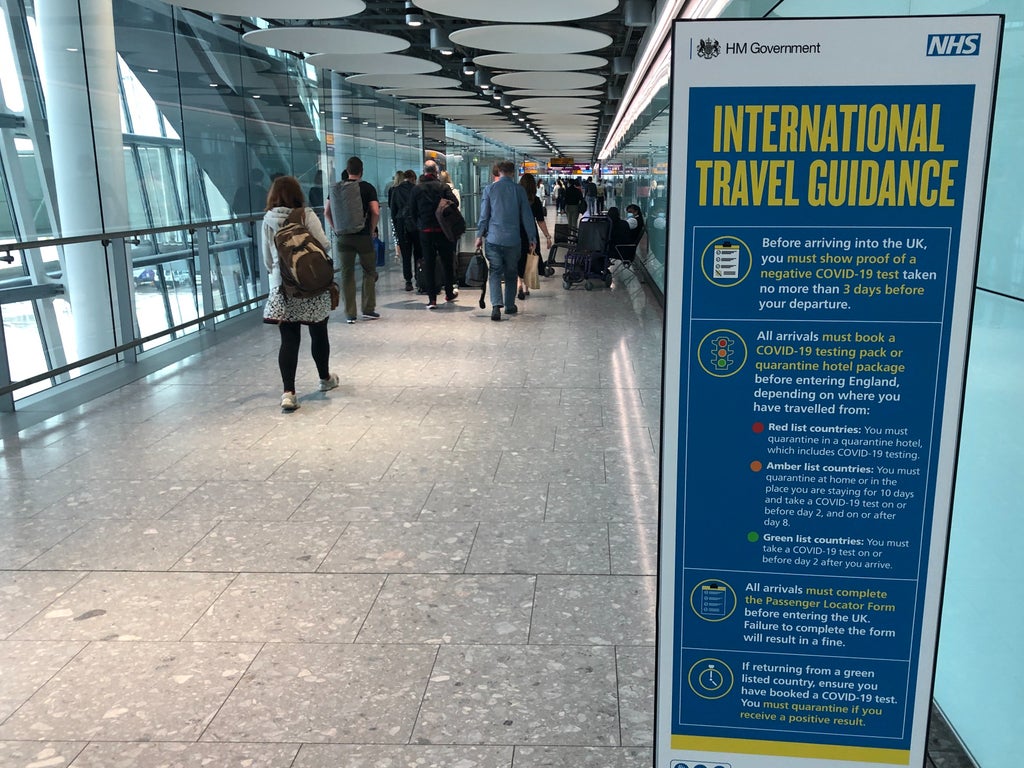
Travel restrictions that were “disproportionate to the risks to public health” and caused severe damage to the UK’s aviation industry, the Transport Select Committee has said.
In a wide-ranging and highly critical report, MPs say the government’s frequently changing Covid-19 rules “were not based on scientific consensus”.
The report states that the measures caused “a severe financial shock to the sector”, without significant health benefits.
But the government insists the travel restrictions “were in place for no longer than absolutely necessary”.
Soon after the start of the coronavirus pandemic, in mid-March 2020, the UK was unique in dropping all arrival restrictions.
But by June of that year, as other countries were opening up, ministers went the opposite extreme with a mandatory quarantine of 14 days for all arrivals to the UK (except from Ireland).
Frequent short-notice changes, coupled with the introduction of hotel quarantine and an incoherent system of “traffic light” restrictions continued for the following 21 months.
All travel measures were eventually removed in March 2022.
The committee, chaired by the senior Conservative MP Huw Merriman, is scathing about the measures imposed by the transport secretary, Grant Shapps.
“The way in which the government introduced international travel restrictions during the pandemic was inconsistent, confusing industry and passengers,” it concluded.
“The aviation industry, which connects the UK to the world, experienced severe economic difficulties due to government restrictions that were not based on scientific consensus.”
Traffic light restrictions are described as “opaque, ambiguous and inconsistent”.
The report says “the rationale behind decision-making on the classification of individual countries as ‘red’, ‘amber’ or ‘green’ was not made available”.
On hotel quarantine, the MPs find “no evidence” of any benefit compared with self-isolation at home.
They also deplored the frequent changes in rules, saying: “Restrictions changed more than 15 times between 2020 and 2022.”
In fact, if the many “traffic light” moves are included, changes run into the hundreds.
A spokesperson for the Department for Transport rejected the committee’s findings, saying: “Our priority was protecting public health, and these measures bought vital time for the rollout of our successful booster programme as we responded to new and concerning variants.
“But we also ensured they were in place for no longer than absolutely necessary, and the UK was the first country in the G7 to remove all travel restrictions.
“In future, the government’s default approach will be to use the least stringent measures, to minimise the impact on travel as far as possible and these will only be implemented in extreme circumstances.”
Tim Alderslade, chief executive of Airlines UK, said: “The sector has been through its worst-ever crisis and it will take several years to deal with the debt airlines had to take on to make it through the pandemic with no passengers.”
Britain’s pre-eminence in European aviation has been lost. For decades up to the start of 2020, London Heathrow was the busiest in Europe.
But the UK’s main hub began 2022 in 10th place, according to Airports Council International, behind both main airports in Moscow, the two Istanbul airports and even the resort of Antalya in Turkey.







